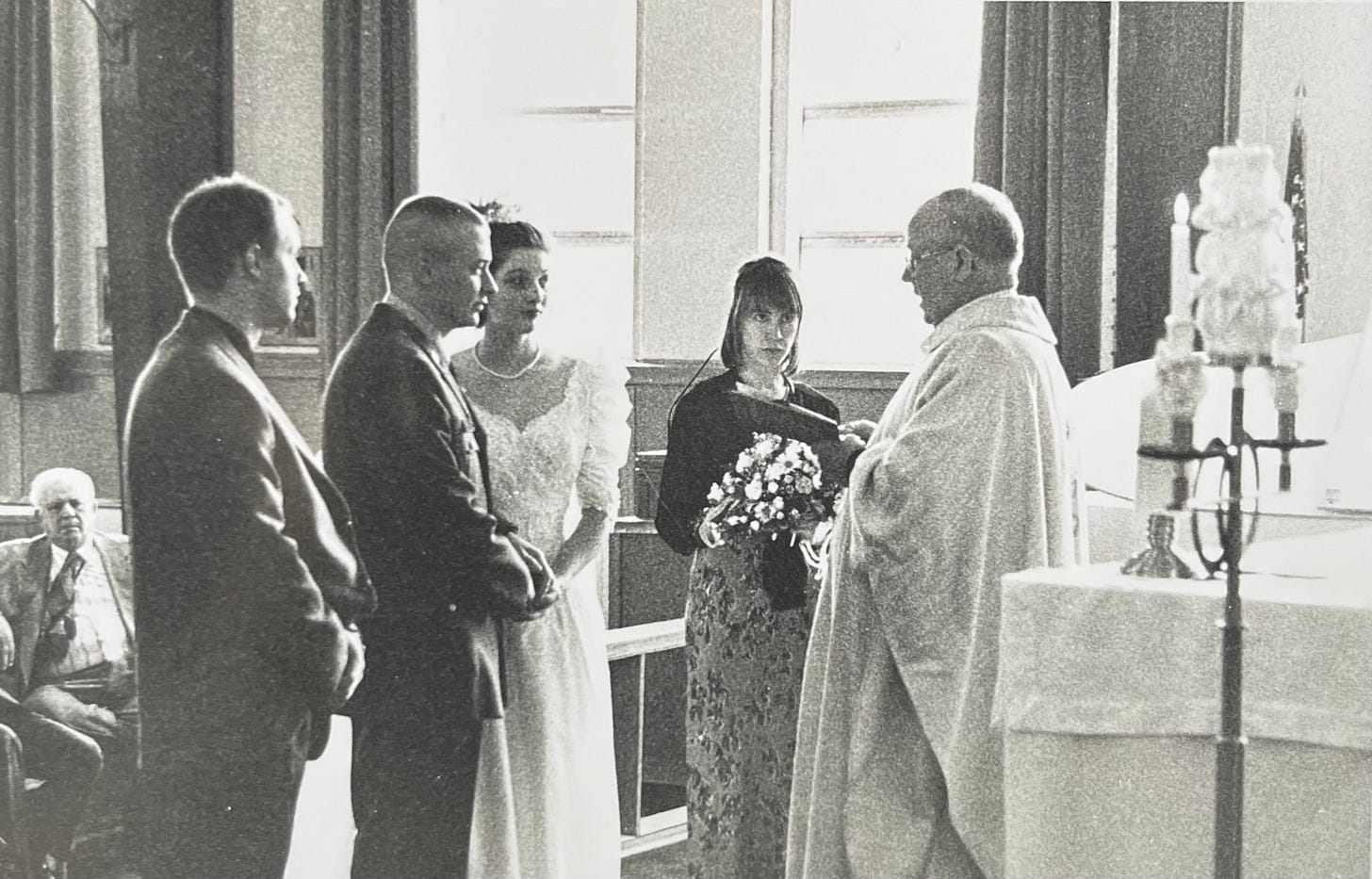What We Bury, What We Become
A Holy Saturday Meditation on Covenant, Silence, and the Space Between
Holy Saturday is the most silent, still, and hauntingly sacred day in the Christian liturgical year. It’s the space between death and resurrection—a day of waiting in the void, where God is absent from the world in a way that cannot be bypassed or hurried.
Much like it feels sitting bedside as a loved one takes their final breath.
It’s not a day of celebration and not even a day of mourning in the active sense.
It is the divine pause—a spiritual holding pattern. A descent into the tomb, not just historically but existentially.
What Happened on Holy Saturday?
Nothing… visibly.
Jesus had died.
His body lay in the tomb, hastily wrapped before sundown on Friday.
The disciples were in hiding, afraid.
The women prepared to return to the tomb the next day to properly anoint the body.
Heaven was silent.
But under the surface of that silence, in Catholic theology, everything is happening.
According to the Apostles’ Creed, Jesus “descended into hell.”
This is known as the Harrowing of Hell—a profound and mystical teaching that Christ entered Sheol (or Hades—not the place of damnation, but the realm of the dead) to liberate the righteous souls who had died before his coming.
Adam. Eve. The prophets.
The just. The forgotten.
It is the final movement of divine solidarity—God goes to the very bottom of human existence, not just to conquer it, but to meet every soul who has ever been lost.
The Theological Weight: Absence as Revelation
Holy Saturday is the day God is dead and buried.
It is the cosmic Sabbath.
The seventh day.
The day God rests in the tomb, just as in Genesis, God rested after creating the world.
But this rest is not from labor—it is from suffering.
Holy Saturday is the hinge between crucifixion and resurrection.
It is the threshold, the womb, the grave, and the gate.
This is the day of all days that mirrors your darkest nights:
When the miracle hasn’t come.
When the silence is loud.
When it seems God is gone.
How Is Holy Saturday Observed?
Traditionally, Holy Saturday is a day of total liturgical stillness.
No sacraments are celebrated during the day—not even the Eucharist.
Churches are dark, bare, and silent.
The altar remains stripped. The tabernacle is empty.
No candles. No bells. No songs.
It is a time of waiting with the dead.
But after sundown, everything shifts.
The vigil begins.
The Easter Vigil: The Night When Light Returns
The Easter Vigil—celebrated after nightfall on Holy Saturday—is the most sacred and ancient liturgy in the Catholic Church.
It is the moment the Church keeps watch at the tomb, awaiting the spark of resurrection.
It begins in darkness.
A single flame is lit—the Paschal candle—symbolizing Christ, the Light of the World.
From this flame, the fire spreads, candle to candle, and the church fills with light and song.
The Exsultet is sung:
“This is the night…”
“…when Christ broke the prison-bars of death and rose victorious from the underworld.”
Baptisms are performed. The Scriptures are read from Genesis to the Gospels.
And by dawn, the tomb is empty.
The Spiritual Invitation of Holy Saturday
Holy Saturday speaks to every part of the human experience that lives between loss and hope.
It is the day for those who have buried dreams, lovers, and children.
For those waiting for healing that hasn’t come.
Those trapped in liminal space—not where they were, but not yet free.
And for those asking, Where is God?
It is a holy acknowledgment that resurrection doesn’t erase the grave.
It emerges from it.
Holy Saturday teaches us how to abide in death without rushing to fix it.
To trust the silence.
To honor the dark as part of the path.
Interestingly, this year’s Holy Saturday falls on the 28th anniversary of my marriage covenant—where My father gave me away at the altar to another man who promised to protect me, but didn’t.
He hurt me too.
And I saved him too.
I covered him too.
I kept silent so he could keep his job, his reputation, and his future.
He got to move on. Remarry. Have children. Start over.
I gave up everything, once again, but my life.
I know something about silence.
About the kind of descent no one else sees.
The tomb isn’t empty yet.
The silence is still thick.
The miracle hasn’t come.
But that doesn’t mean nothing is happening.
God has descended into hell—not to perform, but to gather.
To meet what was lost.
To hold what’s been hidden.
To begin the long return from the inside out.
This is the night beneath all nights.
And even now, something is shifting in the dark.



